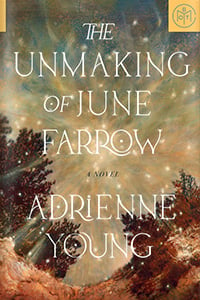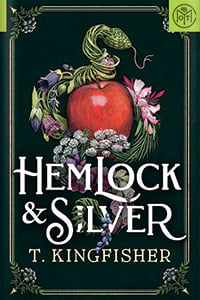

Fantasy
The Silence of the Girls
by Pat Barker
Quick take
A queen of Troy is caught between Achilles and Agamemnon when she is captured and forced into slavery in this ferocious retelling of The Iliad.
Good to know
Feminist
Famous author
Movieish
Literary
Synopsis
The ancient city of Troy has withstood a decade under siege of the powerful Greek army, who continue to wage bloody war over a stolen woman—Helen. In the Greek camp, another woman watches and waits for the war's outcome: Briseis. She was queen of one of Troy's neighboring kingdoms, until Achilles, Greece's greatest warrior, sacked her city and murdered her husband and brothers. Briseis becomes Achilles's concubine, a prize of battle, and must adjust quickly in order to survive a radically different life, as one of the many conquered women who serve the Greek army.
When Agamemnon, the brutal political leader of the Greek forces, demands Briseis for himself, she finds herself caught between the two most powerful of the Greeks. Achilles refuses to fight in protest, and the Greeks begin to lose ground to their Trojan opponents. Keenly observant and cooly unflinching about the daily horrors of war, Briseis finds herself in an unprecedented position to observe the two men driving the Greek forces in what will become their final confrontation, deciding the fate, not only of Briseis's people, but also of the ancient world at large.
Briseis is just one among thousands of women living behind the scenes in this war—the slaves and prostitutes, the nurses, the women who lay out the dead—all of them erased by history. With breathtaking historical detail and luminous prose, Pat Barker brings the teeming world of the Greek camp to vivid life. She offers nuanced, complex portraits of characters and stories familiar from mythology, which, seen from Briseis's perspective, are rife with newfound revelations. Barker's latest builds on her decades-long study of war and its impact on individual lives--and it is nothing short of magnificent.
Content warning
This book contains mentions of sexual assault.
Read a sample
Get an early look from the first pages of Pat Barker's Silence of the Girls.
Why I love it
Taylor Jenkins Reid
I'm a sucker for a good retelling, especially if it's about the Ancient Greeks. So I admit that I'm the exact right audience for Pat Barker's The Silence of the Girls. And yet, it still exceeded my expectations.
The Silence of the Girls recounts the story of The Iliad as seen through the eyes of Briseis, a Trojan queen taken as a slave by Achilles as his reward for the sack of Lyrnessus. As the years-long battle wages on, Briseis tries to make sense of her new life in the encampments. She bonds with the other women held captive, finds something resembling friendship with Achilles's companion, Patroclus, and soon becomes a pawn between Achilles and King Agamemnon. I knew how it would all shake out from the opening page, but I never understood the story and characters like this.
The story of the Trojan War is often narrated with the presumption that the clashing of men's egos and swords is of the highest honor and import. What I love most about this novel is that Pat Barker strips the story of all that glamorization. There are no true "heroes" here. Instead, we are focused on the humanity of the women caught in the cross fire. Briseis may still be tied up in Achilles's story, but she is no longer silent.









































